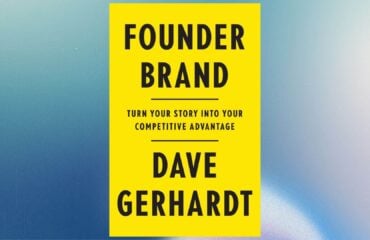
In a world where technology often drives innovation, is it possible that startups are overlooking the most crucial element of success—people? With so much focus on scaling fast and building disruptive solutions, startups can forget to design with humans in mind. People Shaped: Tales and Tricks of a Human Centred Designer by Matt Marsh brings attention to this often-neglected aspect of entrepreneurship.
Book Overview
People Shaped* by Matt Marsh provides a comprehensive look into the world of human-centered design and why it should be at the core of every business strategy, especially for startups. As founders build their vision, they face countless decisions about products, services, and customer interactions.
This book reminds us that at the heart of those decisions are the users themselves—people. For early-stage founders, this book is not just about theory but practical tools for putting people at the center of their business strategies.
Summary
The book is a collection of stories and real-life examples from Matt Marsh’s career as a human-centered designer. It showcases how startups and companies can build more effective products and services by focusing on user needs, emotions, and behaviors.
Marsh walks readers through the importance of empathy, user research, and co-creation while offering actionable strategies that any startup founder can implement. The book is divided into easy-to-digest chapters, each revealing a different aspect of human-centered design and its direct impact on business success.
Key Lessons
– Empathy First: Startups must design with empathy, focusing on users’ pain points, motivations, and desires.
– Test and Iterate: Building successful products requires constant iteration based on user feedback.
– Design is Strategy: Human-centered design is not just a product feature; it should guide strategic decisions at every level of the business.
– Collaboration is Key: Co-creating with users and stakeholders results in more relevant and innovative solutions.
Quotes
– “The most successful startups are those that recognize their customers as collaborators, not just end-users.”
– “Innovation doesn’t happen in a vacuum. It happens when businesses listen, learn, and design with their users in mind.”
Practical Applications
– Customer Discovery: Instead of building based on assumptions, early-stage founders should spend more time interviewing potential users and understanding their real-world problems.
– Product Development: Marsh emphasizes prototyping and testing, advising startups to launch MVPs (minimum viable products) and iterate based on real user feedback.
– Strategic Decision-Making: Founders can apply human-centered design principles to decisions beyond the product, such as branding, marketing, and user acquisition strategies.
For instance, a startup developing a health and wellness app could benefit from conducting extensive user research to ensure they address genuine pain points—whether that’s simplifying tracking features or offering more personalized insights.
Strengths
One of the key strengths of People Shaped is its accessibility. Marsh breaks down complex design concepts into easy-to-understand ideas, making the book perfect for early-stage startup founders with limited design experience.
The practical case studies and real-world examples are especially valuable, as they show the direct impact of human-centered design on business outcomes.
Additionally, the emphasis on collaboration between businesses and users resonates with startups in industries that rely heavily on user engagement, such as tech, health, or education.
Weaknesses
However, some founders may find the examples too simplistic, especially if they are operating in highly specialized or B2B industries. While the lessons are generally applicable, the book may not delve deeply enough into how these principles adapt to industries with highly technical or regulated environments.
There’s also criticism that the book focuses too much on generalist advice, which may not be as useful for startups requiring more niche design solutions.
Questions for You
– Have you conducted enough user research to validate your startup’s core assumptions?
– How can you incorporate user feedback into your current development process?
– What design experiments could you run to ensure your product aligns with your users’ needs?
– Which aspect of your business strategy could benefit from a human-centered design approach?
These questions aim to provoke thought and encourage founders to reflect on how their startups can be more people-shaped, and less assumption-based.

Join Our Founder Network
Building a people-centered business requires not only knowledge but also the right connections and feedback from like-minded entrepreneurs. By joining our Founder Network, you’ll have access to expert guidance, peer insights, and practical resources to help you apply the lessons from People Shaped and other great business books.
Whether you’re looking for feedback on your product design or want to validate your business model, our community is here to support you on your startup journey.



